CORPORATE ACTION: Henkel
Henkel Says It Will Exhibit Packaging Solutions At 2022 Fachpack Trade Show In Nuremberg
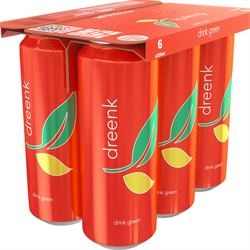
Henkel is joining the Fachpack 2022 packaging supply chain trade show in Nuremberg, Germany, on September 27 to 29, 2022. During the industry event, the company will showcase a line-up of adhesive solutions designed for various packaging challenges, such as the Technomelt Supra ECO carbon-negative bio-based adhesive and the Technomelt Supra COOL line of low-application temperature hot melt adhesives.[Image Credit: © Henkel AG & Co. KGaA]
CORPORATE ACTION: Procter & Gamble
Procter & Gamble Eyes Significant Sustainability Mileposts With Ambition 2030 Agenda
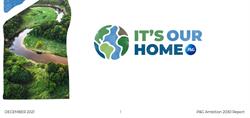 Procter & Gamble’s SVP North America Home Care, Marchoe Northern, discussed the company’s sustainability goals under its Ambition 2030 plan. The company aims to purchase 100% renewable electricity across its global operations, while reducing gas emissions in half at the company’s locations. Also, the company aims to improve water efficiency 35% and promote recycling to keep P&G packaging from reaching the marine environment.[Image Credit: © Procter & Gamble]
Procter & Gamble’s SVP North America Home Care, Marchoe Northern, discussed the company’s sustainability goals under its Ambition 2030 plan. The company aims to purchase 100% renewable electricity across its global operations, while reducing gas emissions in half at the company’s locations. Also, the company aims to improve water efficiency 35% and promote recycling to keep P&G packaging from reaching the marine environment.[Image Credit: © Procter & Gamble]
Herbal Essences Adopts Eastman Renew Molecular Recycled PET
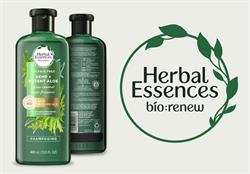
Procter & Gamble’s Herbal Essences haircare brand is using molecular recycled polyethylene terephthalate materials from Eastman Renew to help achieve the company’s goal of reducing the amount of virgin plastic in packaging by 50 percent by 2030. The company aims to achieve this Net-Zero 2040 Climate Transition Action Plan goal without “compromising” the beauty, branding, and functionality of its packaging.[Image Credit: © Procter & Gamble]
Ariel Launches All-in-1 Pods In Paper-based Recyclable ECOCLIC Box
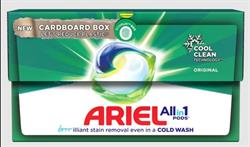 Procter & Gamble’s Ariel brand of laundry care products is offering its All-in-1 Pods laundry detergent in a recyclable cardboard-based box with accessibility and child safety features. According to P&G Fabric Care Europe research and development vice president, Samantha King, the brand’s Ariel ECOCLIC box comes with three key features: it’s made with FSC-certified materials; it’s certified as child safe and designed with inclusivity; and the detergent is designed to be very effective in removing stains in cold water.[Image Credit: © Procter & Gamble]
Procter & Gamble’s Ariel brand of laundry care products is offering its All-in-1 Pods laundry detergent in a recyclable cardboard-based box with accessibility and child safety features. According to P&G Fabric Care Europe research and development vice president, Samantha King, the brand’s Ariel ECOCLIC box comes with three key features: it’s made with FSC-certified materials; it’s certified as child safe and designed with inclusivity; and the detergent is designed to be very effective in removing stains in cold water.[Image Credit: © Procter & Gamble]
CORPORATE ACTION: Unilever
Unilever UK Launches Domestos Bleach In Bottles Made With 50% Recycled Plastic
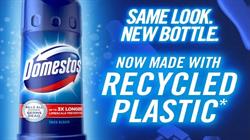 Unilever has relaunched the company’s Domestos range of bleach products that come in 750ml bottles made with 50% post-consumer recycled plastic. The company said the new bottles are made with high-quality resin, ensuring they are “strong and durable” while helping save 1,505 tons of virgin plastic per year.[Image Credit: © Unilever UK & Ireland]
Unilever has relaunched the company’s Domestos range of bleach products that come in 750ml bottles made with 50% post-consumer recycled plastic. The company said the new bottles are made with high-quality resin, ensuring they are “strong and durable” while helping save 1,505 tons of virgin plastic per year.[Image Credit: © Unilever UK & Ireland]
Unilever’s New Laundry Capsule Offers Strong Cleaning Power And Reduced Plastic Waste
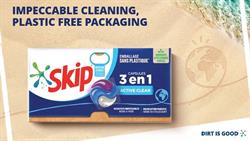 Unilever’s Dirt Is Good line of laundry care products, which includes Persil, Skip, and OMO, is launching a new capsule that comes in plastic-free and 100% recyclable carboard packaging. The brand said the new product is designed to clear tough stains and comes with reduced carbon emissions and plastic waste. Unilever also said the new laundry care product has been reformulated and is designed for use in cold laundry cycles.[Image Credit: © Unilever]
Unilever’s Dirt Is Good line of laundry care products, which includes Persil, Skip, and OMO, is launching a new capsule that comes in plastic-free and 100% recyclable carboard packaging. The brand said the new product is designed to clear tough stains and comes with reduced carbon emissions and plastic waste. Unilever also said the new laundry care product has been reformulated and is designed for use in cold laundry cycles.[Image Credit: © Unilever]
CORPORATE ACTION: Other
In-Store Beauty Recycling Expands As Consumers Demand Transparency In Recycling
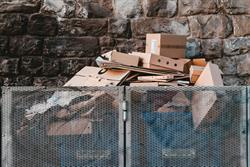 Sephora expanded its in-store beauty packaging recycling program to 35 stores in July 2022. The beauty retailer is joining the ranks of brands and retailers that have added in-store recycling to their business operations in recent years. However, growing consumer awareness of corporate greenwashing has caused increasing public demand for transparency in the recycling process. Consumers and industry executives, such as Pact Collective co-founder Victor Casale, have learned that some “recyclable” packaging ends up in landfills or is incinerated.[Image Credit: © Claudio Schwarz and Unsplash]
Sephora expanded its in-store beauty packaging recycling program to 35 stores in July 2022. The beauty retailer is joining the ranks of brands and retailers that have added in-store recycling to their business operations in recent years. However, growing consumer awareness of corporate greenwashing has caused increasing public demand for transparency in the recycling process. Consumers and industry executives, such as Pact Collective co-founder Victor Casale, have learned that some “recyclable” packaging ends up in landfills or is incinerated.[Image Credit: © Claudio Schwarz and Unsplash]
Casella, TerraCycle Launch Recycling Subscription Service In Vermont
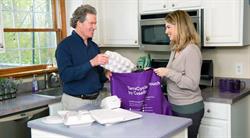 Casella Waste Systems, Inc., has partnered with recycling company TerraCycle to launch the TerraCycle Pouch by Casella pilot subscription program in Burlington, Vermont. The supplementary recycling service will accept items that are not covered by curbside recycling. The program will let subscribers receive pouches, fill pouches with items to be recycled, and have their pouches collected by Casella.[Image Credit: © TerraCycle Pouch]
Casella Waste Systems, Inc., has partnered with recycling company TerraCycle to launch the TerraCycle Pouch by Casella pilot subscription program in Burlington, Vermont. The supplementary recycling service will accept items that are not covered by curbside recycling. The program will let subscribers receive pouches, fill pouches with items to be recycled, and have their pouches collected by Casella.[Image Credit: © TerraCycle Pouch]
Smol Calls On UK Laundry Industry To End Plastic Pollution And Adopt Carboard Packaging
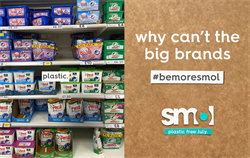 Production of plastic packaging for laundry products has reached about 10,791 tonnes per year in the U.K., and data from environment-friendly cleaning brand smol showed that some 109 million plastic laundry packs were sold in the country in 2021. This information highlights criticisms that the laundry industry’s largest manufacturers, including Procter & Gamble and Unilever, have been guilty of greenwashing. The brand is calling on the laundry industry to adopt cardboard packaging alternatives.[Image Credit: © smol limited]
Production of plastic packaging for laundry products has reached about 10,791 tonnes per year in the U.K., and data from environment-friendly cleaning brand smol showed that some 109 million plastic laundry packs were sold in the country in 2021. This information highlights criticisms that the laundry industry’s largest manufacturers, including Procter & Gamble and Unilever, have been guilty of greenwashing. The brand is calling on the laundry industry to adopt cardboard packaging alternatives.[Image Credit: © smol limited]
ALLIANCES, PARTNERSHIPS & JVs
Woolworths Group Works With Pact To Increase Use Of Recycled Packaging For Own-Brand Lines
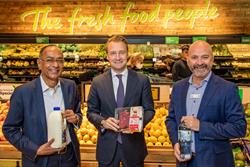
Woolworths Group and Pact are setting up a partnership aimed at recycling as much as 18,000 tonnes of plastic to be used in the retailer’s own-brand packaging each year. The proposed collaboration will make Pact one of Woolworths’s key strategic partners in its efforts to create sustainable packaging for its private-label products. The resulting recycling efforts are forecast to eliminate almost 25,000 tonnes in carbon emissions.[Image Credit: © Woolworths Group and Pact]
CONSUMER & PUBLIC OPINION
More People Stopped Buying Products With A Lot Of Packaging In 2021, Study Reveals
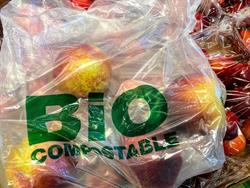
In 2019 to 2021, people changed their purchasing habits to “actively avoid plastic packaging”, according to GlobeScan. Results of the consulting firm’s “Healthy & Sustainable Living” survey of 24,000 people across 24 countries in 2021 revealed that 44% avoided buying products with “a lot” of packaging, compared with 39% in 2019. Among Americans, 38% said in 2021 they rejected products with a lot of packaging, compared with 25% in 2019.[Image Credit: © John Cameron via Unsplash]
Study Shows UK Consumers Not Aware Of Government’s DSR Plans
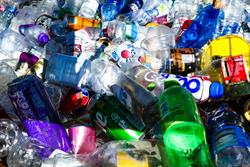
In the UK, 16 percent of consumers say they do not recycle, with ignorance about what can and cannot be recycled as the most cited reason. Results of a survey of 2,000 adults commissioned by GS1 UK revealed that 34 percent said recycling is “unnecessarily complicated”. Also, the study found that only 42 percent had heard of deposit return schemes, while 26 percent knew nothing about DRS at all.[Image Credit: © Nick Fewings/Unsplash]
UK Needs To Change Recycling Infrastructure To Help Gen Z Recycle More
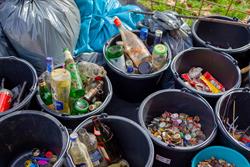 In the UK, 66% of Generation Z people are confident on what packaging can be recycled, compared with 81 percent of respondents who are older than 55 years. Data from DS Smith revealed that 11% of Gen Z respondents do not know where to find advice on recycling, while only 4% of older respondents have the same problem. Results of the study suggest the country needs to change its recycling infrastructure to improve recycling among younger people.[Image Credit: © Jasmin Sessler via Unsplash]
In the UK, 66% of Generation Z people are confident on what packaging can be recycled, compared with 81 percent of respondents who are older than 55 years. Data from DS Smith revealed that 11% of Gen Z respondents do not know where to find advice on recycling, while only 4% of older respondents have the same problem. Results of the study suggest the country needs to change its recycling infrastructure to improve recycling among younger people.[Image Credit: © Jasmin Sessler via Unsplash]
PACKAGING REDESIGNS
Iceland Adopts Parkside’s Recyclable Paper Flexible Packaging For Northcoast Line Of Frozen Seafood
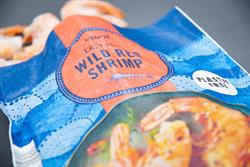
Iceland has worked with packaging company Parkside to develop recyclable paper packaging for the retailer’s Northcoast range of frozen seafood. The packaging solution is one of the first successful applications of paper flexible packaging for frozen food. Northcoast products used to be packed in an LDPE bag but now come in recyclable paper pouch with “excellent” resistance to oil and grease.[Image Credit: © Parkside Flexibles Ltd]
POLICY, REGULATION & LEGAL
Ecoveritas Calls On UK Government To Implement EPR Reforms Immediately
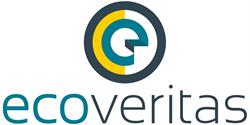 Ecoveritas is calling on the UK government to implement Extended Producer Responsibility reforms without any further delays. The UK government has delayed the implementation of EPR reforms until 2024. The packaging data company asserts that EPR implementation will help the country create a circular economy.[Image Credit: © ecoveritas Ltd.]
Ecoveritas is calling on the UK government to implement Extended Producer Responsibility reforms without any further delays. The UK government has delayed the implementation of EPR reforms until 2024. The packaging data company asserts that EPR implementation will help the country create a circular economy.[Image Credit: © ecoveritas Ltd.]
US Senate Passes Bills Designed To Strengthen And Promote Recycling
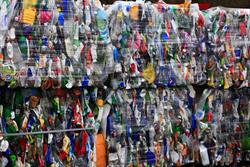
The United States Senate has unanimously passed two bills aimed at fixing the country’s recycling system. The Recycling Infrastructure and Accessibility Act is designed to improve rural access to recycling infrastructure, while the Recycling and Composting Accountability Act will hold the US Environmental Protection Agency accountable for collecting recycling and composting data.[Image Credit: © Nareeta Martin and Unsplash]
INNOVATION & TECHNOLOGY
DS Smith Tests Different Fibers For Use As Sustainable Packaging Solutions
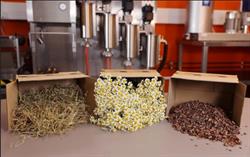
DS Smith is evaluating various alternative fibers as part of the sustainable packaging solutions provider’s R&D and Innovation plan to speed up its operations in the circular economy. As part of the plan, the company is studying the use of annual plants, such as daisies, and agricultural waste focusing on their fiber properties and potential use as paper packaging. Also, the company is testing cocoa shells for use as carton board in chocolate packaging.[Image Credit: © DS Smith]
Finland’s VTT Technical Research Centre To Launch Company With Technology To Return Plastic Wastes To Virgin Grade
 VTT Technical Research Centre of Finland said it plans to spin off Olefy Technologies, a new company that reportedly can convert most waste plastics back into virgin-grade materials an infinite number of times. An estimated 8 million tons of plastic is disposed of in the marine environment each year, which shows that not enough plastic is being recycled. Moreover, recycled plastic cannot be used for some applications, such as food and pharmaceutical packaging.[Image Credit: © Nareeta Martin via Unsplash]
VTT Technical Research Centre of Finland said it plans to spin off Olefy Technologies, a new company that reportedly can convert most waste plastics back into virgin-grade materials an infinite number of times. An estimated 8 million tons of plastic is disposed of in the marine environment each year, which shows that not enough plastic is being recycled. Moreover, recycled plastic cannot be used for some applications, such as food and pharmaceutical packaging.[Image Credit: © Nareeta Martin via Unsplash]
Great Wrap Brings Its Compostable Packaging Business To America
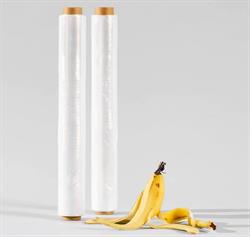
Australia-based Great Wrap is expanding its home compostable stretch wrap business to the United States in August 2022. Great
Wrap co-founders, husband and wife, Jordy and Julia Kay, plan to launch a compostable cling wrap and a refillable dispenser in the US. The products are designed to help households reduce plastic use and promote composting at home.[Image Credit: © Great Wrap]
Israeli Scientist Develops Plastic Alternative That Dissolves In Water
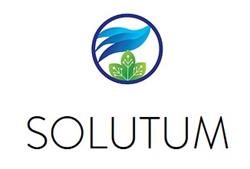
Solutum chief technology officer, Sharon Barak, has developed an alternative to plastic bags that is designed to function like a plastic bag but dissolves completely in water. The company is raising another round of financing to commercialize its biodegradable packaging. Barak said she worked to develop the plastic alternative to help in dealing with the global problem of plastic pollution.[Image Credit: © Solutum]
RESEARCH
Ellen MacArthur Foundation Proposes Circular Economy Objectives For China
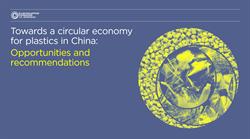 The Ellen MacArthur Foundation’s China team identifies five most important objectives for the country’s government and businesses to develop circular economy strategies. These include eliminating unnecessary or problematic packaging, increasing the use of reusable packaging, making sure all packaging is recyclable and recycled in practice, and increasing the use of recycled content. Also, China’s government and businesses can focus on three priority areas: design, systems and infrastructure, and incentives.[Image Credit: © Ellen MacArthur Foundation]
The Ellen MacArthur Foundation’s China team identifies five most important objectives for the country’s government and businesses to develop circular economy strategies. These include eliminating unnecessary or problematic packaging, increasing the use of reusable packaging, making sure all packaging is recyclable and recycled in practice, and increasing the use of recycled content. Also, China’s government and businesses can focus on three priority areas: design, systems and infrastructure, and incentives.[Image Credit: © Ellen MacArthur Foundation]
ISS National Laboratory Announces Winners Of Space Station Sustainability Research Challenge
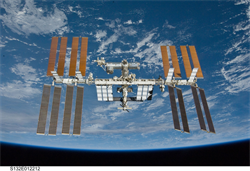 The International Space Station National Laboratory announced two concepts that won in the Sustainability Challenge: Beyond Plastics competition. The winners will receive funding for their research proposals from beauty brand Estée Lauder. The two winning concepts are the Microgravity Synthesis of Aerogel Copolymers proposed by Stephen Meckler from Palo Alto Research Center, Inc. and No Carbon Left Behind: Biological Recycling of Plastic Waste, proposed by Katrina Knauer from the National Renewable Energy Laboratory and the BOTTLE Consortium. The competition called for ideas on how to promote sustainability research on the space station and deal with the global plastic pollution problem.[Image Credit: © NASA]
The International Space Station National Laboratory announced two concepts that won in the Sustainability Challenge: Beyond Plastics competition. The winners will receive funding for their research proposals from beauty brand Estée Lauder. The two winning concepts are the Microgravity Synthesis of Aerogel Copolymers proposed by Stephen Meckler from Palo Alto Research Center, Inc. and No Carbon Left Behind: Biological Recycling of Plastic Waste, proposed by Katrina Knauer from the National Renewable Energy Laboratory and the BOTTLE Consortium. The competition called for ideas on how to promote sustainability research on the space station and deal with the global plastic pollution problem.[Image Credit: © NASA]
Plastic Manufacturers Used Pandemic To Promote Products, Researcher Claims
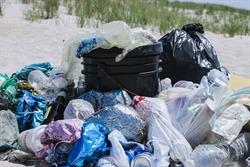 Plastic pollution significantly worsened during the COVID-19 pandemic, with plastic items like PPE and disposable packaging promoted as devices in the fight against the disease. Researcher Alice Mah in her book, “Plastic Unlimited,” claimed that plastic manufacturers falsely advertised the advantages of using plastics during the pandemic to increase sales. Mah is calling on consumers and companies to drastically reduce plastic production and resulting plastic pollution.[Image Credit: © Brian Yurasits ]
Plastic pollution significantly worsened during the COVID-19 pandemic, with plastic items like PPE and disposable packaging promoted as devices in the fight against the disease. Researcher Alice Mah in her book, “Plastic Unlimited,” claimed that plastic manufacturers falsely advertised the advantages of using plastics during the pandemic to increase sales. Mah is calling on consumers and companies to drastically reduce plastic production and resulting plastic pollution.[Image Credit: © Brian Yurasits ]
Copyright 2026 Business360, Inc.

